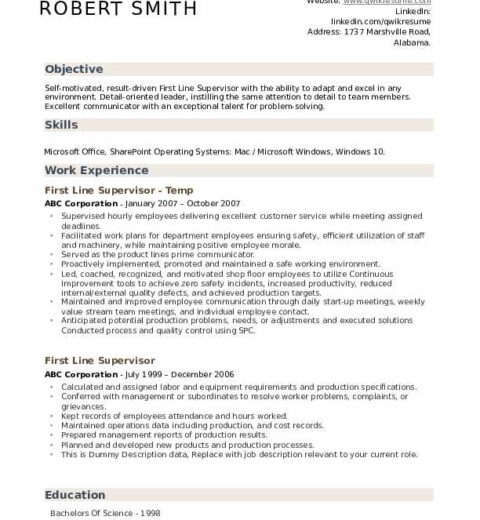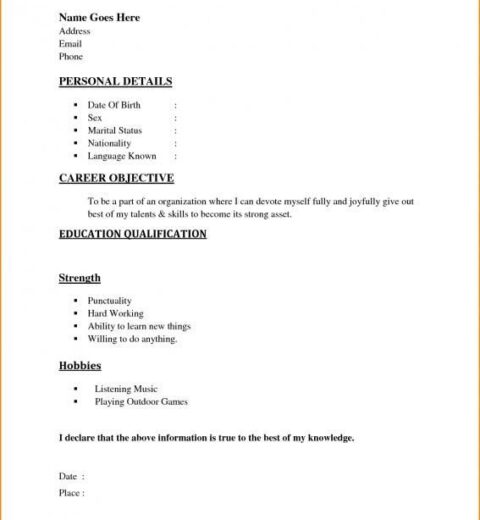The intricacies of the job market often compel individuals to embellish their resumes—a phenomenon akin to a moth drawn irresistibly to the flame. The allure of a better job, higher salary, or a prestigious title can tempt otherwise honest individuals to stretch the truth. But just how dangerous is it to fabricate information on a resume? Is it merely a harmless embellishment, or does it harbor potential legal ramifications? As we delve into the legal landscape surrounding resume inaccuracies, the metaphor of a double-edged sword emerges; while the immediate gains of deceit may seem appealing, the long-term consequences can be both profound and devastating.
Understanding the legal implications of lying on a resume requires a foundational grasp of employment law. In the United States, there is no overarching federal law that explicitly prohibits lying on a resume. However, certain practices can lead to legal repercussions. For instance, the potential for fraud arises when falsifying information leads to tangible damages for the employer, especially in cases where the employee’s skills or qualifications are essential for the job. Thus, although “resume fraud” is not a strictly defined crime, it can invoke a broader spectrum of legal concerns, including misrepresentation and breach of contract.
To unpack this, one must consider the distinction between benign fabrications and those that have malevolent intent. For example, inflating job titles or embellishing duties is commonplace; many view it as an acceptable way to stand out in a crowded job market. Conversely, providing false credentials—such as degrees not earned or certifications not obtained—can be classified as fraud, especially if the misinformation affects a hiring decision. This leads us to the crucial question: at what point does embellishment transition to deceit in the eyes of the law?
Several high-profile cases illustrate the gravity of lying on a resume. Consider the case of a chief executive who exaggerated her previous experience, which led to her dismissal after the company discovered the discrepancies. Not only did the individual lose her job, but she also faced potential legal action for misrepresentation. This scenario exemplifies the grave consequences that can arise when the scale tips towards deceit.
Many states have enacted laws against resume fraud, targeting specific areas such as impersonation and credential fraud. For example, lying about educational qualifications can lead to severe penalties under these statutes. Those found guilty may face criminal charges, fines, or civil lawsuits, particularly if their deceit negatively impacted the employer or misled clients and stakeholders. Even in the absence of lawsuits, individuals caught in the act may experience a significant loss of reputation, a commodity that, once tarnished, is difficult to restore.
Furthermore, certain professions carry heightened scrutiny regarding truthful representations. In fields like healthcare, education, and finance, where public trust is paramount, lying on a resume can have dire implications not just for the individual but also for public safety and welfare. Regulatory bodies often impose strict licensing requirements, and falsifying qualifications may lead to revocation of licenses or certifications, effectively ending one’s career in that field.
Employers are also advised to conduct thorough background checks to mitigate the risk of hiring individuals with dubious qualifications. Comprehensive vetting processes may involve contacting previous employers, verifying educational credentials, and conducting criminal background checks. Thus, the chances of getting caught increase significantly, transitioning the prospect of lying into a high-stakes gamble.
The ramifications of lying on a resume are not confined to legal penalties alone; they permeate into the realm of ethics. The ethical considerations surrounding resume inaccuracies reveal a deeper narrative about integrity and trust. An employer must place confidence in their employees, and this bond is fundamentally built on transparency. The breach of this trust through dishonesty can lead to a toxic work environment, with coworkers unlikely to feel secure or valued, thereby undermining team cohesion.
Even in cases where an individual manages to secure employment through deception, the long-term repercussions can be detrimental. The imposter syndrome might take root as the individual grapples with the constant fear of exposure. This anxiety can lead to diminished job satisfaction, decreased performance, and ultimately premature resignation or termination.
In conclusion, while the job market may tempt individuals to present themselves in an embellished light, the potential risks of lying on a resume are multifaceted and far-reaching. The law, while not overtly draconian in nature, does delineate clear guidelines on the boundaries of honesty in professional representation. The allure of immediate gains must be weighed against the likelihood of legal repercussions, reputational damage, and ethical dilemmas. By operating in transparency and truthfulness, candidates not only safeguard their future but also contribute to a more trustworthy and equitable workplace. Ultimately, the price of dishonesty can far outweigh the fleeting benefits, making integrity the most valuable asset in the professional sphere.




